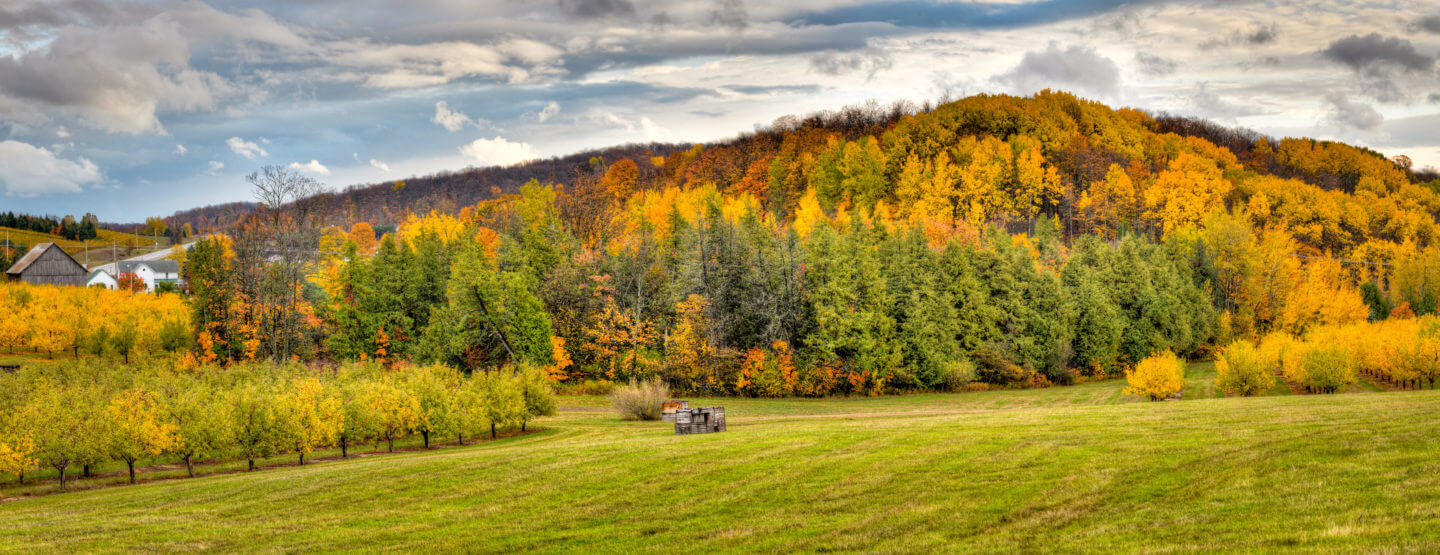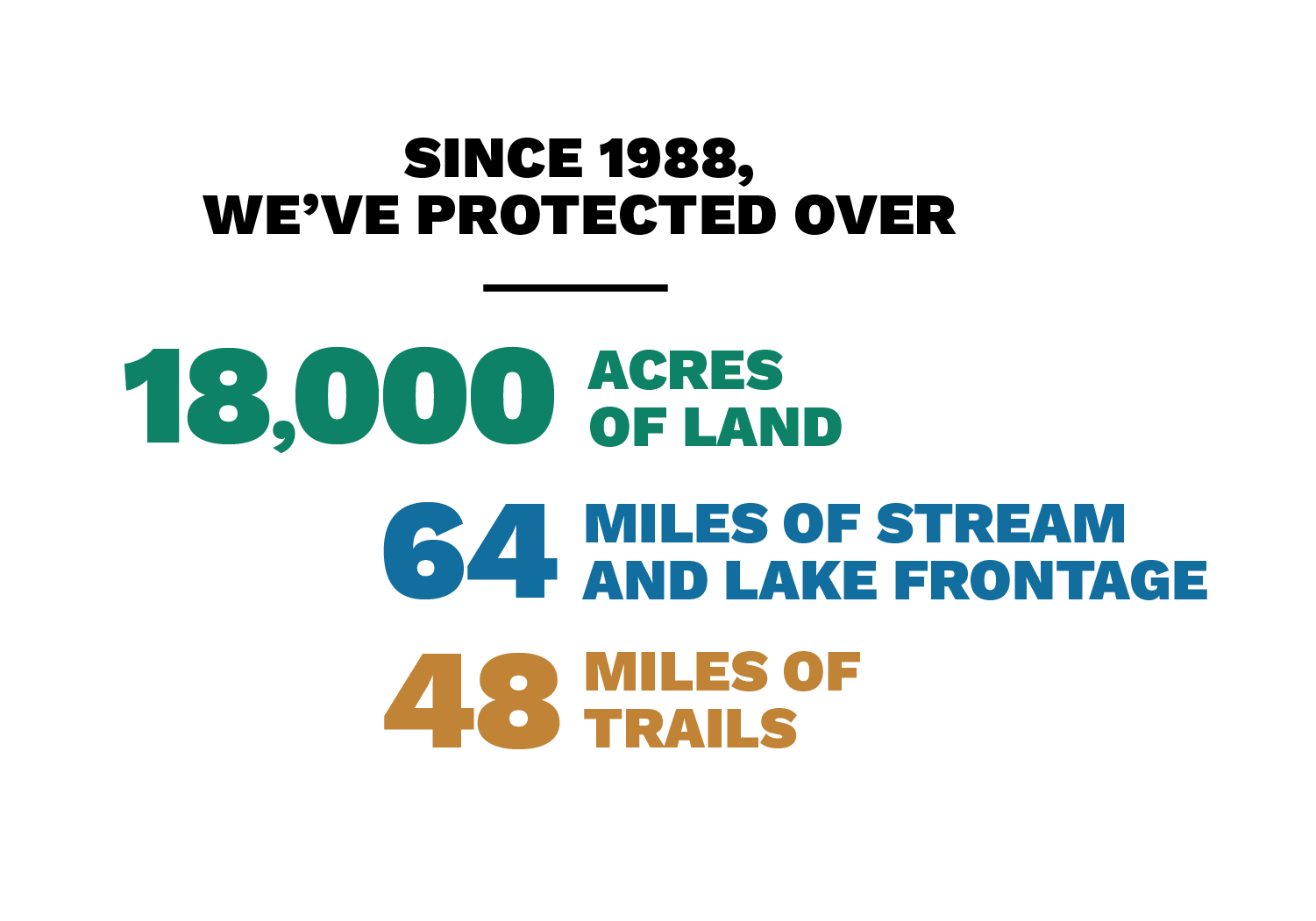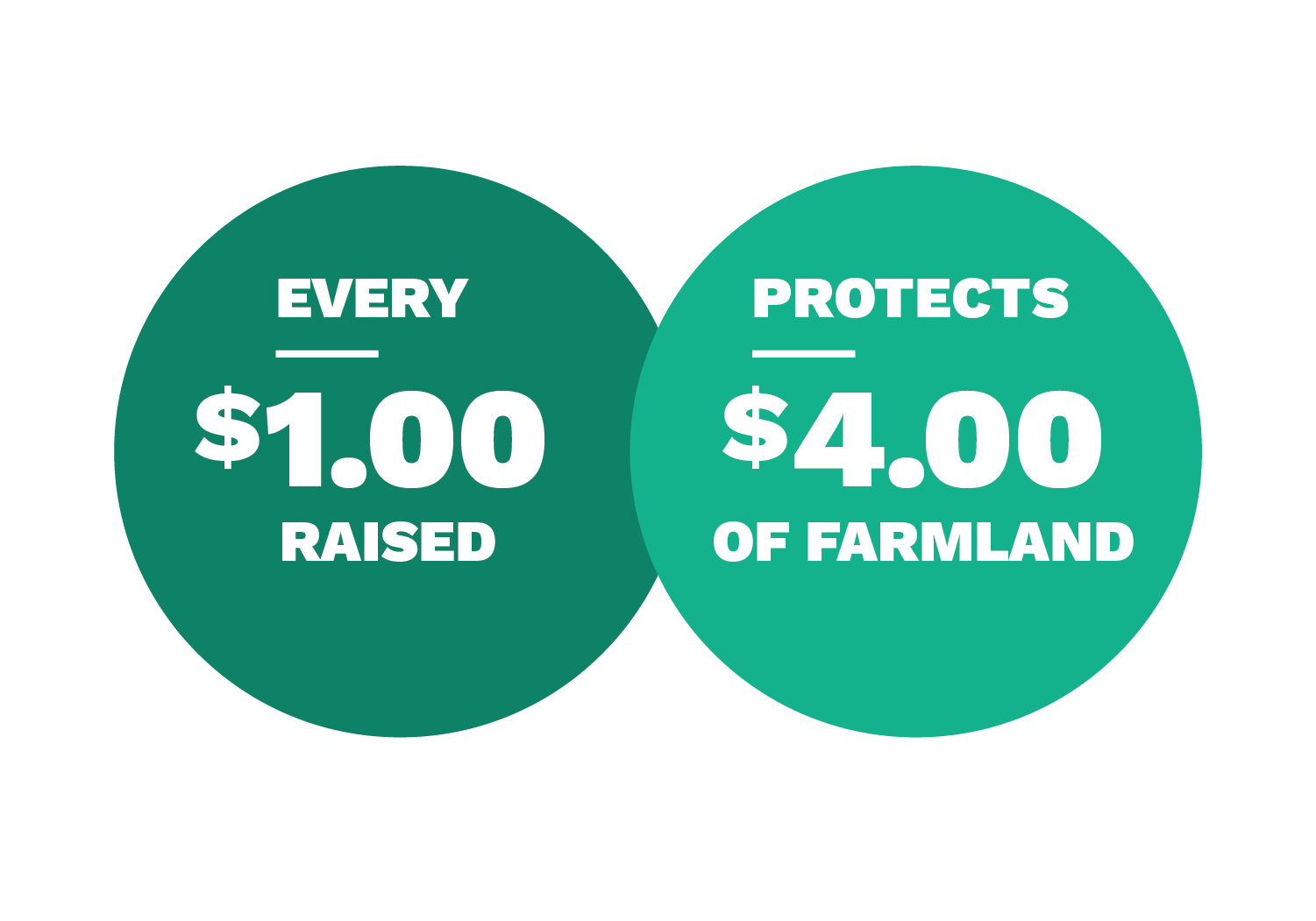Agriculture is a very important part of Leelanau County’s landscape, economy, and cultural heritage. Farms and farmland contribute to the scenic beauty and rural character that makes Leelanau such a desirable place to live and visit. A growing population and a housing boom are putting pressures on the land. Many farmers are finding it hard to say no to selling land that is worth far more as residential development—especially in light of low prices for cherries and apples.
The Leelanau Conservancy has protected over 100 farms and thousands of acres of farmland through a mechanism called purchase of development rights or a conservation easement. In a nutshell, farmers are paid the difference between what their land is worth as farmland versus what it is worth as residential land. Farmers retain all rights to their land and continue to farm it, but the land is restricted from development. Each agreement—the legal term is conservation easement— is different and is tailored to the needs and desires of each landowner.
Over the years, the Leelanau Conservancy has secured millions of dollars in state and federal farmland protection funds to complete several projects throughout the county. We are proud to have preserved multigenerational farms like the Shimek Farm in Kasson Township, the Parker Farm, the Stanek Farm in Elmwood Township and the Newton Farm and its beautiful views of the Manitou Passage from Jelinek Road in Leelanau Township.
We’re always working towards preserving more farmland in Leelanau. Recently, $20.4 million was awarded to the Tribal Stream and Michigan Fruitbelt Collaborative. These funds will help protect farmland. The collaborative is made up of The Leelanau Conservancy, Grand Traverse Band of Ottawa and Chippewa Indians, Grand Traverse Regional Land Conservancy, and Conservation Resource Alliance.
“We’re incredibly grateful to be a part of this collaborative, and to the Grand Traverse Band of Ottawa and Chippewa Indians for their leadership on this project, as well as Senator Stabenow for creating the Farm Bill and supporting local and regional food systems. To get access to funds from the Farm Bill meant for protecting water quality and valuable farmland, the Conservancy needs to raise an equal amount of money and land value on its own. This means for every project, farmers play a crucial role by agreeing to receive less money than the full value of their land rights, which are being permanently protected. The gap between the actual value and what they receive is considered a generous donation of land value, showing their deep dedication to Leelanau County,” says Executive Director Tom Nelson. Read about the details in an article here.
To see farmland protection in action, click here to read this Traverse City Business News article interviewing CE landowners. Click here for a quick one pager on Conservation Easements. For information about protecting farmland, please contact our Director of Farmland Protection Kim Hayes: khayes@leelanauconservancy.org.
Resources for Farmers
MSU Extension has a wealth of resources for farmers on their agriculture page. Find guidance on crop management, livestock care, pest control, and sustainable practices. Access insightful articles, webinars, and workshops that can help your agricultural operations. Stay updated on the latest industry trends, technologies, and best practices. Whether you’re a seasoned farmer or just starting out, MSU Extension offers invaluable tools to boost productivity and sustainability on your farm. Click here to view.
Farmland Stories
RCPP Partnership
GTB is the lead partner of the Tribal Stream and Michigan Fruitbelt Collaborative, a part of the Regional Conservation Partnership Program (RCPP), a partner-driven approach to conservation that funds solutions to natural resource challenges on agricultural land from the Natural Resources Conservation Service. This is the first indigenous-led collaborative of its kind in the nation, and has brought over $20 million to the region. The Leelanau Conservancy is grateful to GTB for their leadership on this effort, and to partners Conservation Resource Alliance and Grand Traverse Regional Land Conservancy.
“The Tribal Stream and Michigan Fruitbelt Collaborative’s primary goal is the preservation and restoration of the fragmented multi-tribal fisheries and wildlife populations in northwest Lower Michigan. These natural resources face challenges posed by the modern transportation network’s disruption and unsustainable development. The Anishinaabeg people heavily depend on stream crossings within the contemporary transportation system as vital access points, enabling them to exercise their Treaty-protected rights to hunt, fish, trap, and gather resources within the 1836 Treaty of Washington Ceded Territory. Led by the Grand Traverse Band of Ottawa & Chippewa Indians, one objective of this project is to rectify 29 problematic stream crossing structures throughout the Ceded Territory.
Furthermore, the local waterways and wildlife corridors face additional threats from escalating development pressures. Particularly concerning are the areas proximate to water bodies jointly managed by tribal governments for both commercial and subsistence purposes. To ensure the protection of vital groundwater supplies and to maintain the viability of these pivotal wildlife corridors, a second objective will be undertaken safeguarding 3,700 acres with perpetual conservation easements which will significantly limit development and maintain rainwater infiltration.” (Excerpt from nrcs.usda.gov.)
Read the recent Ticker article on the latest round of funding: https://www.leelanauticker.com/news/204-million-for-farmland-protection-watershed-restoration/
Learn more about GTB: https://www.gtbindians.org/




